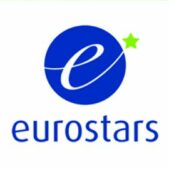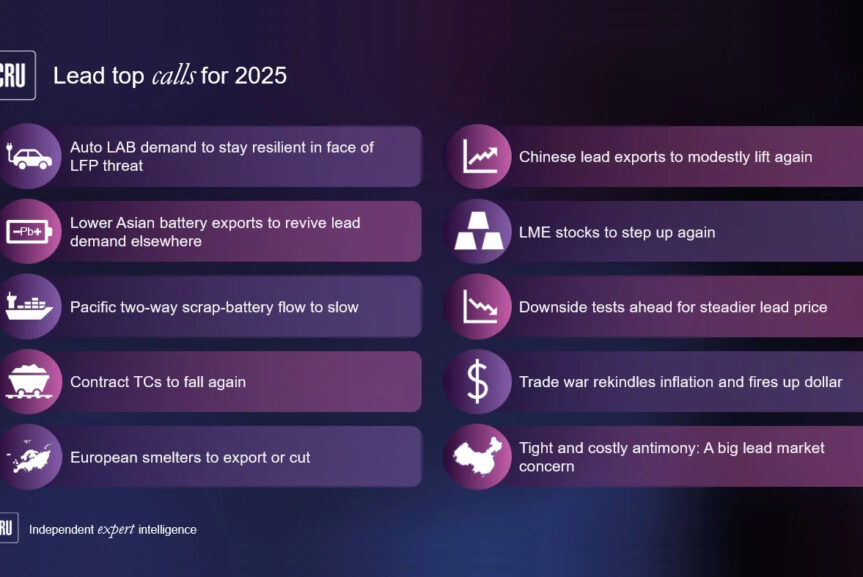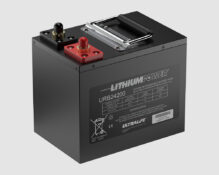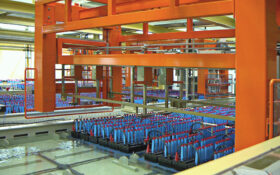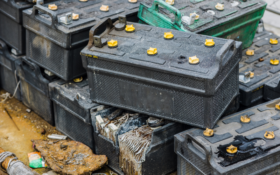Elektron Energy, the South African lead-acid battery start-up, has been awarded around €250,000 (US$282,000) from the EU and national funding authority (DST)-backed Eureka Eurostars initiative to develop its next generation bipolar batteries.
The manufacturer plans to begin initial pilot production of its bipolar batteries— using intellectual property from UK-based Mega Amps and nano-structured leady oxide from Aurelius Environmental— in its facility in Strand, Western Cape. The project is due to begin commercialisation by mid-2022.
Aurelius and Elektron will jointly develop and commercialise the bipolar batteries as a consortium/joint venture by combining their respective technologies.
Elektron will target the transportation (start-stop and basic hybrid vehicles), stationary UPS, datacentres, telecommunications and motive industrial markets and aims to eventually license the technology to global battery manufacturers.
The company aims to double the energy density over existing LABs by optimising the battery design and electrochemical reactivity between the nano-structured leady oxide and lightweight lead-coated battery infrastructure.
The technology also allows the battery end-user to fine-tune the ratio of lead/lead oxide, particle size and the alpha-to-beta ratio in the final PbO product to meet specific customer requirements.
Neill Human, director of Elektron Energy, told BEST Battery Briefing industry experts Eurobat, the automobile manufacturers’ associations of Europe, Japan and Korea and the International Lead Association, “expect that lead-based batteries will be the battery of choice to provide extra services in basic hybrid vehicles— such as stop-in-motion, voltage stabilisation— and supply additional power requirements such as redundancy, safety and comfort features.
Human said: “We will be able to meet these requirements and capture a 4% market share, equivalent to 1.6 million units, in five years, post-project. This is highly realistic as it is expected that there will be 35 million basic hybrid vehicles in the world by 2022.”
“Our secondary market is the global stationary lead-acid battery storage market. Here, cost and reliability become more important than power-to-weight ratio. Our batteries are expected to have a much higher energy density than existing conventional lead-acid batteries and competing NiMH batteries. As such we are confident to capture a significant market share.”
The firm will also target the motive industrial segment, which Human believes will be driven by weight, stability, cost and power. “A high energy density battery will be extremely beneficial in this application as vehicles will be able to load more goods per duty cycle, increasing efficiency without suffering from instability issues,” he said.
The grant from Eureka Eurostars to Elektron is a first for a South Africa/UK relationship in the energy field.
BESTmag insight. Our technical editor Dr Mike McDonagh says: “The bipolar design basically cuts out the lead strap which connects the plates. This saves at best 15-20% of the weight. The extra output has to come from improving the active material utilisation by additives and using smaller (nano) particles of lead active material. A lot of people are working on this but as yet have no practical success in gaining anything significant without losing out on cycle life.
“The Aurelius material from recycled lead from solution may be nano-structured, and other companies who precipitate lead from solution have made this claim, but there is still a big ocean to cross to pull all those together to make a viable battery. Bottom line: needs a big leap of faith to accept it.
“The fine tuning of the material to alter its allotropic form (alpha and beta) is also not new. I’ve not got first hand experience of Aurelius’ production method for the AM, but I know its possible to achieve this type of modification with standard LAB AM during the processing of plates, it is something that is standard practice in most LAB companies. Bottom line: it’s feasible and quite likely.”

